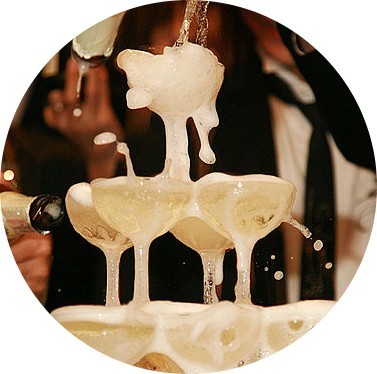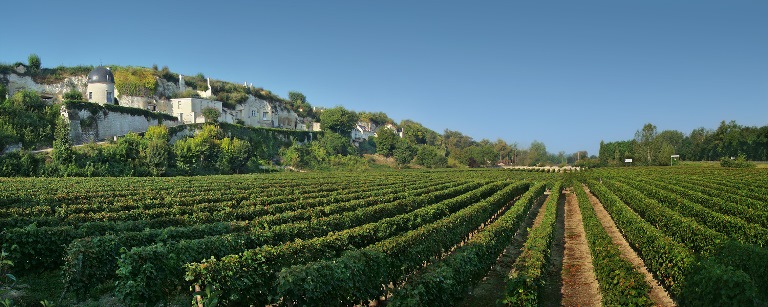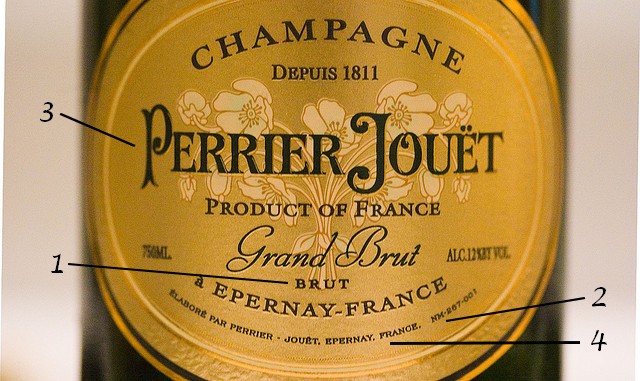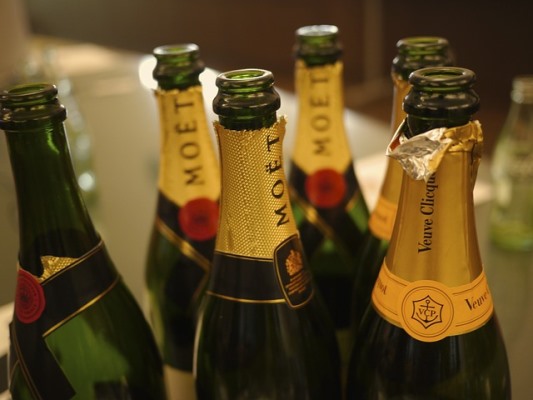Champagne guide: become a French champagne expert – easily!
 Drinking champagne is one thing, but understanding the intricacies behind every drop is a whole new adventure.
Drinking champagne is one thing, but understanding the intricacies behind every drop is a whole new adventure.
Here at My French Life™ we’ve been busy learning all we can about champagne.
It’s a thirsty business!
As a result we’ve prepared a champagne guide to help you understand how to read a champagne label and understand all the champagne terminology, plus we discuss the trade-off between quality and price.
On y va – let’s present the beginning of our six part ‘Champagne guide: how to become a French champagne expert’.
1. Become a champagne expert: the facts and terminology
Champagne is one of life’s greatest pleasures but how much do you actually know about the bubbly beverage?
Arm yourself with these seven must-know bubbly facts and let us answer all of your sparkling questions so you have a greater understanding about champagne but also so you can impress your friends!
Did you know that there are three different types of Champagne? Blanc de Blanc, Blanc de Noir and Rosé. And do you know the difference between the sweet Doux, and Demi-Sec to the more drier tastes of Sec, Brut cuvée and Ultra-Brut.
We’ve simplified the terminology challenge in our champagne guide to make it easier to digest and we suggest that it’s best read with a glass of champagne in hand. Read more.
2. Champagne guide: how to read a champagne label
Champagne could very well be the secret to happiness, and Madame De Pompadour said of the amber sparkling nectar “Champagne is the only wine that leaves a woman beautiful after drinking it.”
But the choice can often be overwhelming. As much as we all love a glass at a wedding, Christmas or even just at dinner, or anytime really, reading a champagne label can sometimes feel like reading another language.
So before you chill your bottle of bubbles, here are a few hints on what to look for when reading a champagne label in our champagne guide. Read more.
3. Understand the champagne trade-off: price versus quality
When it comes to choosing the perfect bubbly, there’s another leçon to be learned: understanding the trade-off between price and quality.
Another thing to consider when buying your bubbles is whether you want to drink (real) champagne (French champagne from Champagne), or sparkling wine.
In some cases, the only difference is the region in which the wine was produced. If you’re looking to buy champagne but don’t want to spend a fizzy amount of money, then consider looking at other sparkling wines. This is why we’ve prepared our champagne guide. Read more.
Watch out for the next three parts to our Champagne Guide.
Are you a champagne expert? Share some secrets with us! This conversation is missing your voice! Add your comments to the box below!
Your subscription (free or paid) will be gratefully received and will help me continue to build ‘le Bulletin’ to be even more rich – the weekly newsletter of MyFrenchLife.org Magazine – Merci Mille Fois
Image credits:
- Champagne tower, via Wikimedia.
- Vineyards, by La Chiquita via Wikimedia.
- Perrier Jouet by Thomas Hawk, via Flickr.
- Bottles, by Ewan Munro via Flickr.










What is special about grower champagnes is that their wines capture the vineyard’s terroir. This means the wine has the unique taste of the exact place it was grown. So while the champagne produced by the grandes marques is delicious without doubt, because it is made from grapes grown all over the region, it fails to capture the essence of any one area.
Yes lee I agree, thanks for clarifying.
A good champagne is hard to beat. In fact is there a bad champagne at all?
thank you
Excellent Post . Please post more on quality champagne .
Fact: Champagne has 3 times more carbonation than beer. Fact: The pressure in a Champagne bottle is about 3 times the amount of pressure of that in a car tire. When popped, a Champagne cork can reach a velocity of 24.8 miles per hour. Fact: The longest recorded cork flight was 177 feet and 9 inches.